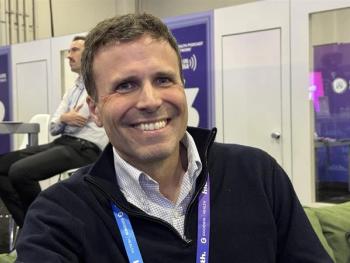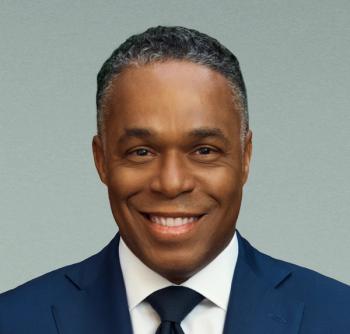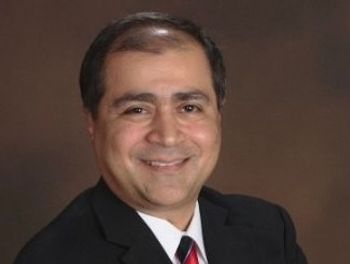
PX: What Is Big Data, and Why Does It Matter?
Four top health tech experts discuss the looming potential and limitations of big data capture, and what it means for healthcare.
In healthcare, some folks toss around the term "big data" as if it was the panacea to every problem the industry faces. Of coure, that's just too bold an assumption. So, if it's not the savior we need, then what is big data as it pertains to healthcare? How heavily should we invest in mining big data, and what sacrifices must we be willing to make in order to give it the attention it deserves?
Underneath all the hype, what is big data? Our expert panel weighs in.
Leveraging Big Data and AI in the Hospital of Tomorrow
A Healthcare Analytics News® Peer Exchange®
Segment 1/11
Kevin R. Campbell, M.D.: Hello, and thank you for joining this Healthcare Analytics News™ Peer Exchange titled “Leveraging Big Data and AI in the Hospital of Tomorrow.” As you know, data, artificial intelligence [AI], analytics and other advanced technologies are transforming health systems and the way in which we practice medicine. But these solutions don’t come without plenty of work and investment from all stakeholders including healthcare organizations, physicians, scientists, regulators and legislators. Today, we’re here to discuss the capabilities of big data and AI, and how health systems can use these tools to improve patient outcomes, streamline workflow, improve efficiencies and ultimately build the hospital of tomorrow, today.
I’m Dr. Kevin Campbell. I’m a Duke-trained cardiologist and the CEO of PaceMate. I’m also an on-air medical expert for local and national TV news, and a proud member of the Healthcare Analytics News™ editorial advisory board.
Participating today on our distinguished panel are:
Dr. Geeta Nayyar, chief healthcare and innovation officer for Femwell Group Health, and a nationally recognized leader in healthcare information technology. She’s been named one of the top 26 smartest people in health IT by Becker’s Report.
We also have John Nosta, who’s the president and founder of NostaLab. He’s a faculty member of Singularity University, a member of the Google Health Advisory Board, a member of MYOS Corporation’s board of directors, a senior editor and editorial board member for Lifestyle Medicine Journal and a contributor to both Forbes and Psychology Today.
We also have Dr. David Albert, a Duke-trained cardiologist and the inventor of the KardiaMobile ECG device. He is a well-known innovator and disruptor in healthcare, and the current chief medical officer of AliveCor.
Thanks so much to all of you for joining us. Let’s dive right in.
Our first segment is all about what big data can and cannot do. We know that big data’s a buzzword and it’s been the buzzword of the decade. Most physicians really don’t have a great idea of what this word really means. While it’s certainly en vogue to throw around this term, it’s important that we all get a better understanding of what big data is and what big data can do. Most importantly, what big data cannot do in medicine. So, our goal right now is to move beyond the buzzword. Let’s jump right in.
To start, Dr. Albert, I’d like to ask you, how would you define big data and how is big data changing medicine right now?
David E. Albert, M.D.: Well, Kevin, one of the things we do in clinical research is [to] try to get the biggest, N we can, in order to power our studies to give us an answer, whether that’s positive or negative. Big data really is the notion that we’re going to go way beyond that N needed to power a study. And then we’re going to utilize basically enough data to represent the world. Usually your data are powered enough to represent certain types or classes of patients. The idea of big data is it represents everything. And so that’s a challenge but also a great opportunity.
Kevin R. Campbell, M.D.: John, what do you think of when you hear the term ‘big data’? What does that mean to you, and how do you see that fitting in to what we’re doing in healthcare today?
John Nosta, B.A.: I cringe, I think, is what happens. All right, look, big data is the third fundamental window into humanity. I think we’ve got to frame it up that way. In other words, there was a thing called the telescope that got Copernicus in trouble, and it looked at a system outside of the earth. The second was the microscope — that second window into humanity. That showed us a vast interconnectivity. It also showed us things like antimicrobial therapy. Now I believe that big data will allow us to see connections that are both technological, scientific, and human.
Everybody knows about the [game], “Six Degrees of Separation,” with Kevin Bacon; the thing that we’re all connected by 6 people. I think that big data will be the “Six Degrees of Connection.” That we will make clinical inferences via interesting data points. And in fact, as N goes to infinity, N is actually going to get small in a strange way. For example, if I know how many times you open your refrigerator combined with the number of steps you take, combined with RR variability — I’m making it up — we may be able to predict an event based upon that dataset. So, the magic of big data is in fact magical. I think that we get lost in it as being sort of a big computational mumbo-jumbo.
Kevin R. Campbell, M.D.: Geeta, as a director and a contributor to big healthcare systems, and you’ve had leadership roles now at Femwell and other places, what does big data mean to you, and how do you use that to assist the people in the organizations that you’re working with?
Geeta Nayyar, M.D., MBA: Every day we’re striving to do medicine, but better, right? You and I both know, Dave knows, we know a lot, but we don’t know everything. The idea, and a concept behind big data is that we will be able to get accurate, precision medicines, better clinical support, clinical decision support for doctors like us that are trying to figure out, what is the best treatment for the patient sitting right in front of us?
One of the biggest misconceptions about big data, however, is that; like everything else in medicine; the data is still siloed. We had a lot of data from the EHR [electronic health records], a lot of data from the payers, a lot of data from the patients, but that’s a lot of big data, and sensitive data. So, we also have to be thinking about how we are making sure that our health systems are secured. That we’re keeping in mind privacy. Because it’s just not just big data, it’s big sensitive data, right? So as much as we can help the patient, we have to be very cognizant of the possible harm that we might cause for the patient as well.
John Nosta, B.A.: Maybe it should be big analytics. I mean big data sounds like a problem to me and not a solution.
Geeta Nayyar, M.D., MBA: No, you’re right.
John Nosta, B.A.: Human exhaust. Data exhaust. We have so much data and it’s only coming at us faster, with greater volume, with greater sources. So, is big data the next disease? Is there some toxic component to it?
Geeta Nayyar, M.D., MBA: Well I think that’s why organizations such as ours, such as all of us here, we have to be really mindful about the way that we go about these things, right?
Number 1, what’s the problems we’re trying to solve for? So, the problem is, how do we do population health management? How do we do value-based care? How do we do better quality medicine with the tools that we have today? And cool new tools like AI; cool new tools that give us the opportunity to put pieces of big data together to analyze how to better treat a patient is the key. But we have to be really mindful about some of the gaps that are still out there because big isn’t always better.






































